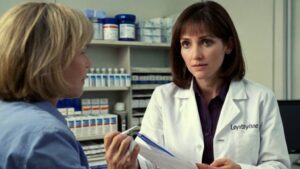Beat the Odds with Early Cancer Detection and Treatment

Cancer is a complex disease that affects millions of people worldwide. It can manifest in various forms and can affect people of all ages, races, and genders. Unfortunately, cancer is a disease that can be difficult to detect and treat. However, early detection and treatment of cancer can significantly increase the chances of successful treatment and a positive outcome. Early detection can help identify cancer when it is still in its early stages, making it easier to treat and manage.
This is why it is essential to educate yourself on the signs and symptoms of cancer and to undergo regular screenings, especially if you are at high risk. In this blog post, I’ll discuss the importance of early detection and treatment of cancer, as well as the different screening methods available. I’ll also provide tips on how you can reduce your risk of developing cancer and how to cope with a cancer diagnosis. Join us as we explore the various ways to beat the odds when it comes to early cancer detection and treatment.
The Benefits of Early Detection and Treatment
Cancer is the most common cause of death in the United States, and it is a leading cause of death in women. Early detection of cancer is important for several reasons. First, early detection allows for more effective treatment. Second, early detection allows for earlier interventions that can reduce the size of the tumor and improve the patient’s chances for a successful outcome. Third, early detection can help to avoid the development of metastases, which can lead to a more deadly outcome. Finally, early detection can help to reduce the emotional and financial burden that cancer can cause.
There are many signs and symptoms of potential cancers, and it is important to be aware of them so that you can get help if you think you may have cancer. Some common signs and symptoms of cancer include:
Changes in the size or shape of a mole
A lump, or a growth
A new or increased pain in the body
A change in the color or shape of a mole
A discharge from the nose or mouth
Bleeding from the mouth or vagina
Difficulty swallowing
A lump in the neck
A persistent cough
unexplained weight loss
Fatigue
If you are concerned about any of these signs or symptoms, you should see your doctor.
Know your risk factors
It is important to recognize your risk factors for cancer, and that early detection and treatment are key to beating the odds. Knowing your risk factors is the first step in prevention. Some common risk factors include age, gender, family medical history, lifestyle choices, and exposure to certain environmental or occupational hazards. Other less common risk factors may include prior radiation or chemotherapy treatments, past or current smoking, or an inherited genetic mutation.
Your doctor can help you understand your individual risk factors and recommend lifestyle changes or preventive screenings to reduce your risk. Prevention and early detection are critical, as early diagnosis of cancer can improve your chances for successful treatment. Regularly scheduled exams and screenings may help detect cancer at its earliest stages. It’s important to be aware of these risk factors and to have regular checkups with your doctor to monitor potential changes in your physical health. Additionally, staying up to date with recommended screenings such as mammograms, colonoscopies, and Pap smears can help with early detection. When cancer is found early and treated promptly, there is often a greater likelihood of successful outcomes and long-term survival. Therefore, it is essential to discuss these factors with your doctor.
Educate yourself on symptoms
Beating the odds when it comes to cancer starts with early detection and treatment. With an early diagnosis and the right treatment plan, you can significantly improve your chances of beating the disease. That’s why it’s important to be aware of the signs and symptoms of cancer so that you can get medical attention as quickly as possible. It’s also essential to attend regular screening appointments and follow your doctor’s recommendations for preventive care. To be proactive about your health, it’s important to learn about the signs and symptoms of cancer.
Common symptoms include changes in bowel or bladder habits, persistent fatigue, and unexpected weight loss. Knowledge is power, and by educating yourself on the signs and symptoms of cancer, you can increase your chances of catching it early and getting the necessary treatment. It is important to be aware of any changes to your body, such as lumps, unusual bleeding, weight loss, and changes in bowel movements. If you experience any of these symptoms, make sure to contact a healthcare professional for diagnosis and treatment. They will assess your situation and determine the best course of action. Additionally, it is important to be aware of any family history of cancer and to discuss it with your doctor. Regular screenings, such as mammograms, colonoscopies, and skin examinations
Get regular checkups
Cancer is a devastating and life-altering illness, and early detection and treatment are key to successfully beating the odds. That’s why it’s important to get regular checkups from your doctor. Early detection gives you the best chance of surviving and thriving after a cancer diagnosis. Your doctor can conduct tests to detect cancer early and recommend a treatment plan tailored to your specific needs. For example, some cancers may require a combination of surgery, radiation therapy, chemotherapy, or other treatments. You can also take proactive steps to reduce your risk of cancer. Eating a balanced diet, exercising regularly, avoiding tobacco use, and limiting your exposure to cancer-causing agents are all important steps to take.
Take part in clinical trials
Early detection and treatment of cancer can give patients the best fighting chance for successful outcomes. While no two cases of cancer are the same, the earlier it is detected, the more likely it is to be treated effectively. Consequently, it is important to keep up with regular screenings and to be aware of any changes in your body. If any suspicious signs or symptoms arise, contact your doctor immediately. Furthermore, consider participating in clinical trials to help further cancer research and treatments. Clinical trials are clinical studies that test new treatments to determine their effectiveness, safety, and side effects. By taking part in these studies, you can join the fight against cancer and help to develop new and effective treatments. Talk to your doctor or a clinical trial specialist to learn more.
In conclusion, early detection and treatment of cancer are essential in increasing a cancer patient’s chances of survival and recovery. With the right combination of education, awareness, and access to the right resources, anyone can beat the odds of being diagnosed and living with cancer. Taking the steps to detect and treat cancer early can mean the difference between life and death. Thank you for reading my post, hope it was helpful.







